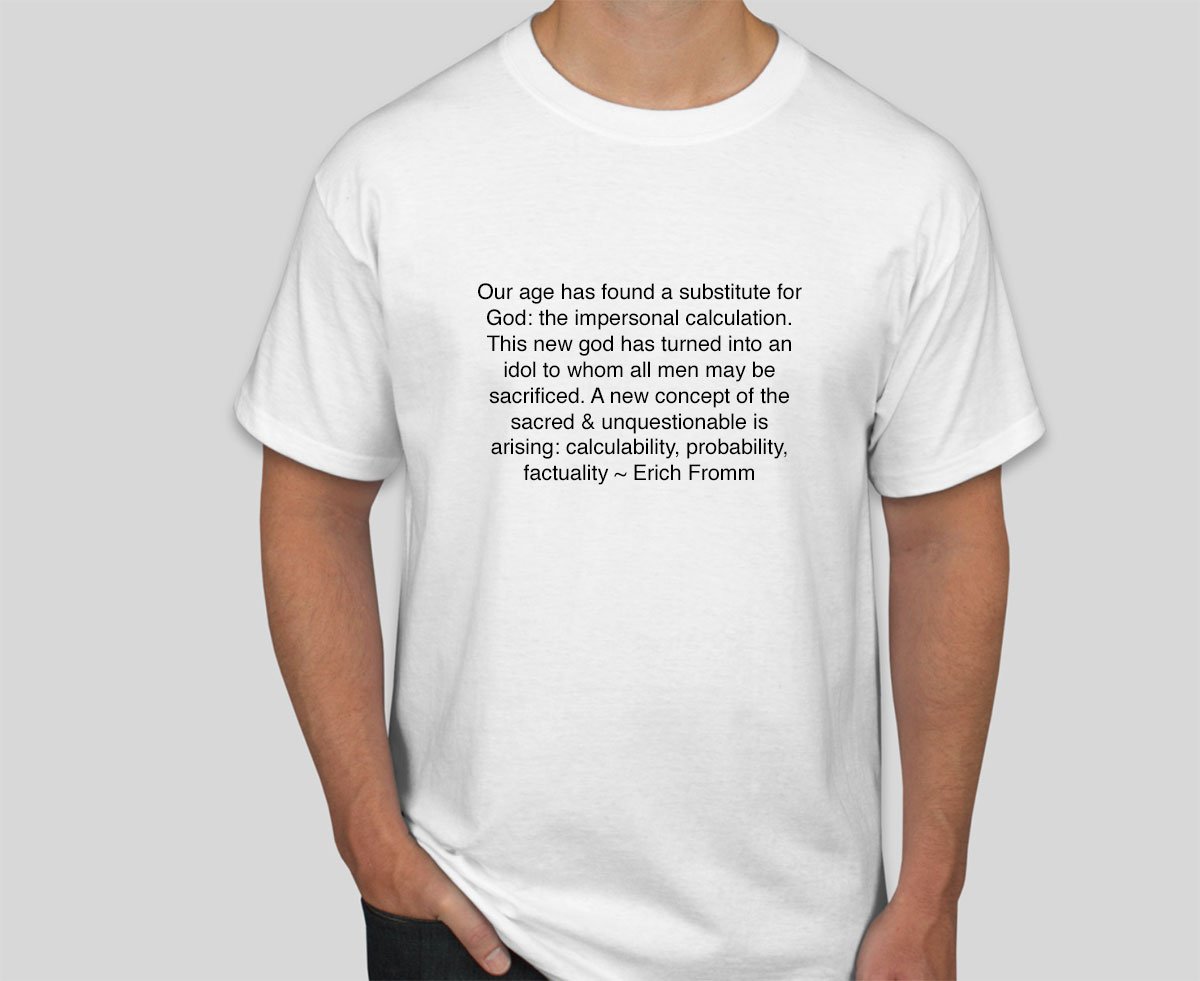Thoughts on Sanity in Times of Automated Insanity
The following is a collection of loosely connected thoughts on the role of sanity in times of automated insanity. Its purpose is mainly a note to self for future writing. Feedback welcome.
Part One
One of the great tragedies of our cultures embracing the story that machines soon will eclipse humanity is that humans started to experience themselves mainly as things ~ as objects instead of subjects ~ as meaningless collections of matter trapped inside a random, dead universe.
This view of life and the self is passive, static and egotistical. It relates to the world in terms of "having objects" instead of the process of participation. Modern man 'has' everything - gadgets, jobs, entertainment, technology - yet 'is' nothing.
People that believe machines will be 'better' than them in every possible way and replace them in the foreseeable future, gradually lose all sense of hope, faith and courage ~ ending up living mummified existences, constantly on the defence and living in deep fear.
To conclude this section, I'll like to invite you to meditate on the following question: "What does it mean to be human?" To have hope & interest, to feel love & tenderness, to 'be' verses to 'have', to transcend the ego & simplistic narratives of the imminent takeover by machines.

Part Two
"The possibility that we can build robots who are like men belongs, if anywhere, to the future. But the present already shows us men who act like robots. When a majority of men are like robots, then there will be no problem building robots who are like men" ~ Erich Fromm (1968)
For 5k+ years, the intense human need for certainty was guaranteed by the concept of God. With the dawn of science, we had to learn to deal with (un)certainty rationally & develop critical thinking. Today, we run the risk of again losing such skills, by replacing "God" with "A.I"
The defining characteristic of the extreme end of the A.I spectrum (singularity), is Necrophilia ~ an attraction to death, decay and a indifference towards life. They want to control life cause they are deeply afraid of it. Its symbol is the Russian roulette or killer robots.
When AlphaGo leaves the game board & enters the real battlefield. As described by Fromm:
"The blind and irrational reliance on computer decision becomes dangerous in foreign policy as well as strategic planning when done by opponents, each of whom works with his own data-processing system. He anticipates the opponent's moves, plans his own, and constructs scenarios for the X possibilities of moves on both sides. He can construct his game in many ways: that of his side winning, a stalemate, or both losing. But as Harvey Wheeler has pointed out, if either "wins" it is the end of both. While the purpose of the game is to achieve a statement, the rules of the game make a stalemate unlikely. Both players, by their methods and their need for certainty, give up the way which has been that of precomputer diplomacy and strategy: the dialogue - with its possibility of give and take, open or veiled withdrawal, compromise, or even surrender when that is the only rational decision. With the present method, the dialogue, with all its possibilities for avoiding catastrophe, is ruled out. The action of the leaders is fanatical because it is pursued even to the point of self-destruction, although in a psychological sense they are not fanatics, because their actions are based on an emotion-free belief in the rationality (calculability) of the computer methods."
"Our age has found a substitute for God: the impersonal calculation. This new god has turned into an idol to whom all men may be sacrificed. A new concept of the sacred & unquestionable is arising: calculability, probability, factuality" ~ Erich Fromm - The Revolution of Hope, Toward a Humanized Technology (1968)

Part Three
"The function of Reason is to promote the art of life" - Whitehead
To be continued...